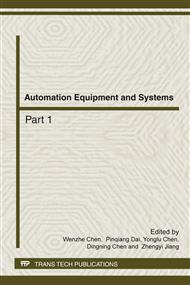p.1767
p.1771
p.1775
p.1781
p.1785
p.1789
p.1794
p.1798
p.1802
Family Culture, Institution Environment and Entrepreneurship Orientation: a Case Study from China
Abstract:
The growth of Chinese economy originates from the progress of the private enterprises. The entrepreneurship orientation, such as innovativeness, pro-activeness and risk-taking, contributes to the performance, defined as a compound measure dimension of growth as well as financial achievement. The case of the Mao Lixiang implies that economies with stronger entrepreneurial cultures from his family’s business tradition, are more tolerant and understanding of business failure and do not perceive this as a barrier to entry, but as an opportunity to learn. The ambition to change the present situation urges him to have the adaptability to political institutions and the regulation of entry, and find the business opportunities as well. The business history of Mao exhibits the Chinese continuous spirit of entrepreneurship.
Info:
Periodical:
Pages:
1785-1788
Citation:
Online since:
February 2012
Authors:
Price:
Сopyright:
© 2012 Trans Tech Publications Ltd. All Rights Reserved
Share:
Citation:


